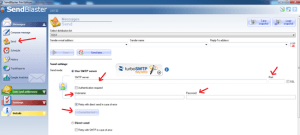Here’s When to Pay Small Business Taxes
Paying taxes as a small business can be one of the most complicated things you’ll do, and in between the busy life of a business owner, it isn’t always front of mind. All businesses must pay tax, though, and you may find yourself with a penalty if you’re not careful. Finding out what tax you’re liable for and any tax breaks you may have is worth the investment in time, or if not, it’s worth investing in a professional to help you.
As well as finding out what types of tax you need to pay, it’s also essential to know when you need to pay them. When you’ve done the work to ensure you pay the correct amount, missing a deadline will be frustrating, so having this exact date in your diary is crucial. Individuals pay their taxes once a year before the IRS sets a deadline, but businesses are slightly different, and estimated tax must be paid through the year.
The amount of tax that a business pay through the year is based on the estimated amount of net profit you think the business will make through the year. At the end of the year, you must balance the books, working out how much net profit was made through the year and how much tax is owed compared to the estimated amount. When you file your tax return, any differences in these amounts are paid back to you, or additional taxes must be paid. For more information about when to pay your taxes and how much you need to pay, make sure to check out Taxfyle resources.
Tax rates for small businesses
There are many different types of business entities in the U.S, and each of these has its taxable amounts. For example, C-corporations pay a flat piece of 21%, down from a maximum of 35%, which was put into effect in 2018. Small businesses like S-corporations, general partnerships, and sole proprietors all pay unique amounts of tax, so it’s essential to understand the best entity for you based on how much you’ll owe.
What taxes do you need to pay?
These business entities are generally small businesses with only one owner and are taxed based on the income they make each year like standard income tax. Personal income tax increases depending on income, starting at 10% and increasing up to 37% on an increasing scale.
There are additional taxes that must also be paid by small businesses, including employment taxes, Medicare, social security, and unemployment tax. 12.4% of wages paid (up to $137,000) is paid in social security tax, half of which the employer must pay and the other half by the employee. Medicare is taxed at 2.9% of wages paid to someone, again split between the employer and the employee. Federal unemployment tax must also be paid by all employees and taxed at 6% of the first $7000 paid in wages. Also, each state has its unemployment tax rates, and the amount you’ll need to pay will vary depending on where you’re registered to trade and the size of your company.








